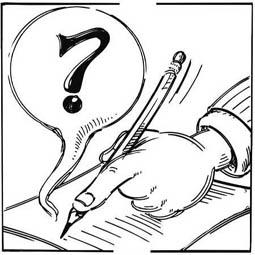How to Write Your Own Recommendation Letter
Published: Sep 13, 2012

So you’ve developed a great relationship with your professor, mentor or supervisor, and it’s time to ask for a letter of recommendation. While the standard practice is for references to write their own recommendation letters, it’s becoming increasingly common for time-strapped individuals to ask you to pen the first draft of a letter yourself. This is a great opportunity for you to make sure that you get a stellar recommendation letter that highlights the most relevant skills and experiences you have to offer. Here, some tips for writing your own letter of recommendation:
- Prepare an outline of your letter by making a list of your strengths, abilities and skills. Choose several of these to highlight in your letter. You should also select two or three specific examples of your performance to which your recommender can attest (it doesn’t make sense for your college professor to talk about the details of your summer job performance). At least one accomplishment discussed in your letter should be directly related to your experience with the recommender: for example, the A+ term paper you wrote or your lively class participation. However, it’s okay to touch upon related activities that weren’t directly supervised by your reference. In other words, it’s plausible that your professor would know about your involvement with student government even if he or she didn’t serve as the organization’s advisor.
- Use the correct voice. It might feel a bit odd, but remember that the letter must be written in the voice of your recommender. This means you will have to refer to yourself in the third person.
- Begin the letter by stating the purpose of the letter and the capacity in which your reference knows you. For example, “It is my pleasure to recommend Jane Smith for admission to your graduate program. I have known Jane for nearly four years, during which time she was my student as well as a teaching assistant for my introductory psychology course.”
- Don’t be shy. The purpose of a recommendation letter is to highlight your best qualities in the most positive light possible. Now is not the time to be modest; your recommender can dial down the tone if he or she sees fit. Be specific about skills and, where possible, provide comparative metrics of your accomplishments. For example, instead of writing, “Jane was a great student in my Clinical Psychology Seminar,” try, “In a class of nearly 50 students, Jane earned the highest grade in Clinical Psychology.”
Have you written your own recommendation letters? Share your strategy in the comments below!
***